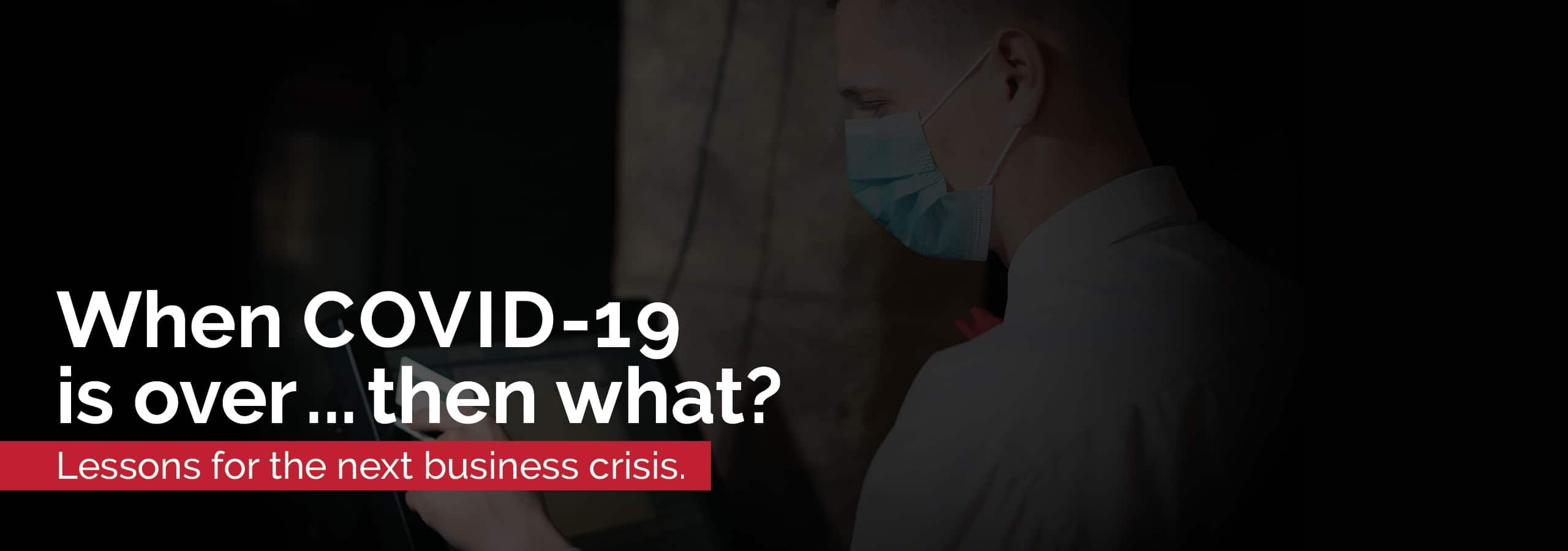

by Jeff Caponigro, APR, PRSA Fellow
The COVID-19 pandemic has exposed worst-case scenarios beyond comprehension for individuals, business, non-profit organizations, schools and universities, government units and the sports and entertainment industry.
We have seen the tidal wave of emotions surge from shock to denial to disbelief to frustration to fear. As we have tried to stay safe and well, we now seek the beacon of light and optimism as we look forward to the “new normal.”
It is surely more complex but really no different than after any other crisis situation that requires an answer to a fundamentally important four-word question: “What have we learned?”
In my book, THE CRISIS COUNSELOR: A Step-by-Step Guide to Managing a Business Crisis, I describe a seven-step process to effectively manage a crisis situation. The first step is to “identify the vulnerabilities.” Just as we recognize a new normal is on the horizon, we also see how a pandemic has now been added to our vulnerabilities like others in recent years – terrorism, opioid abuse, cybersecurity and a new threshold of discrimination and harassment.
Other than Bill Gates and a few Hollywood movies, no one would have imagined a global pandemic that would have so swiftly and severely led to the deaths of 120,000+ people around the world and abruptly slammed the brakes on economic prosperity and financial security. COVID-19 has shown us that business and commerce are far more fragile and vulnerable than ever imagined – where once thriving and prosperous businesses and industries can be crippled in the matter of days and weeks.
I mentioned in THE CRISIS COUNSELOR that nearly every crisis is preceded by a warning sign – and history has shown that COVID-19 was no different. The signs from previous pandemics warned us: The Bubonic Plague (1346-53), the Third Cholera Pandemic (1852-60), Flu Pandemic (1889-90), Sixth Cholera Pandemic (1910-11), Spanish Flu Pandemic (1918-20), Flu Pandemic (1968) and HIV-AIDs Pandemic (at its peak, 2005-12). We may not have realized that COVID-19 would be so far-reaching or what kind of virus it would be, but it wasn’t inconceivable that such a pandemic could occur again in the world and United States.
The COVID-19 pandemic revealed the inherent fragility of small businesses with vulnerabilities that included the granddaddy of them all – the fact they could be forced to stop production and serving customers at a moment’s notice. The blackout of 2003 that pulled the plug of technology and communication to many Northeast and Midwest states, now looks in hindsight like a mere inconvenience compared with the guillotine-like devastation Small Business has endured with COVID-19. What can be learned? Start with adding the “new vulnerabilities” to the “new normal.”
Small Business now knows it has a workforce with which it must communicate, inform, empathize, assist and encourage. It can face fast-changing and complex regulations and compliance issues to manage. And, it may need to rely more than ever on outside advisors and companies in the areas of HR, I.T., accounting and law, so it can stay focused on its core business. Small Business also has learned now how easy it is to be overwhelmed in a crisis and how there are often more questions than answers but that you still need to control the messaging – failing to do so is at its own peril, leaving the narrative for others to express.
As we see the proverbial light at the end of the tunnel, let us take a look forward by learning about what is (or soon will be) behind us. Where is my business most vulnerable to a crisis? For what do I wish we were better prepared? In hindsight now, what do I wish we would have done better or different? In what areas could we have used the help and which functions should we partner with someone for the future? What do I most want our employees, customers and other stakeholders to know about our business and how I feel about them?
What else have we learned? COVID-19 reinforced to us that nothing is more important than the health and well-being of our families, friends, employees and business colleagues. We also learned the five tenets of communication: honesty, information, empathy/compassion, opportunities for input and questions, and a call to action (i.e., what we can do going forward).
From a crisis standpoint, COVID-19 is an ultimate test, but it won’t be the only test. I wrote in my book that “all businesses have one thing in common – all have vulnerabilities, and all can and will experience crises.” The strong survive in business and the strongest are prepared to move decisively and confidently in a crisis by being prepared heading into the crisis.
For those small businesses that survive COVID-19, a rebirth and renaissance can occur that will turn them into a more effective and robust business by examining and re-examining their vulnerabilities, how to prevent them from turning into a crisis, and what can be done to prepare now for the next time the legs are cut out from under the business.
Let’s make sure that we answer, “What have we learned?” with not simply a historical perspective of the past, but the sense of empowerment and action going forward.
For Small Business, the experience gained has provided a new meaning behind the mantra, “We can. We will. We must.”
Contact Trion TodayJeff Caponigro, APR, Fellow PRSA, is Executive Vice President-Corporate Communications and Marketing for Trion Solutions (www.relyontrion.com) and the author of THE CRISIS COUNSELOR: A Step-by-Step Guide to Managing a Business Crisis, published in English, Chinese, Norwegian, Polish and German.
Please complete the contact form below for assistance.